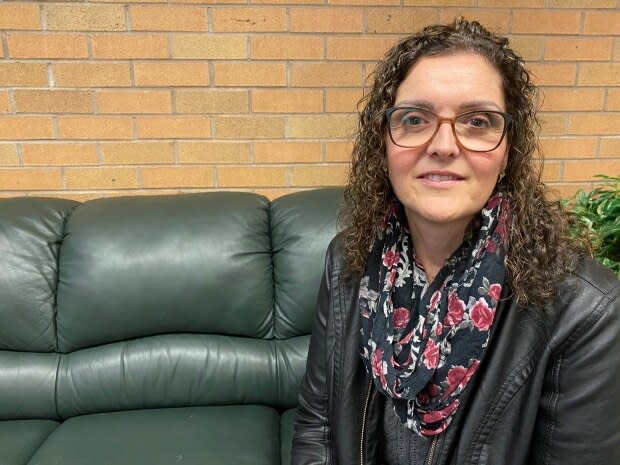Breast cancer survivors 'in dire need' of life-saving drug
A Prince Edward Island woman is one of many across the country in "dire need" of a life-saving cancer drug amid a national shortage.
Monique Doucette, of St. Louis, P.E.I., went to have her yearly prescription refilled for the drug Tamoxifen but was told, she said, that only a month-long supply was available — instead of the regular three-month supply.
When her supply ran out she was told by her pharmacy that it had just 10 pills left and that other pharmacies in P.E.I. had no stock available.
Panic set in.
"I wondered who is going to sit with me and tell me what my options are? Who is going to make a further plan with me? And I have 10 days to do it?" she said.
"It's worrisome for sure, I mean for me it is a part of a long-term plan. A problem that I hope to never face again."
She is one of approximately 150 Islanders using Tamoxifen, according to Health PEI. It's an oral drug used to treat breast cancer and help prevent it from returning. Doucette describes it as a daily dose of chemotherapy.
The typical amount of time a patient is expected to use the drug is five years, but Doucette — a two-time cancer survivor — has been on the drug for seven years as part of a long-term recovery plan.
She is one of many scrambling to find the drug across Atlantic Canada and the rest of the country. Women in Nova Scotia and Newfoundland and Labrador have been scouring their provinces with little success and have sounded the alarm over the shortage.
One of them called it a "crisis point."
'I've attended too many funerals'
Shortages were first reported in August, according to drugshortagescanada.ca, which is the website where drug shortages and discontinuations in Canada are reported.
Three companies that manufacture the drug cited high demand and "a disruption in manufacture of the drug" as reasons for the shortage.

In an emailed statement, Health Canada describes it as a national shortage and says it is aware of "the significant impact that this shortage has on patients."
The department is working with provinces and territories on solutions, it said, including "exploring access to international supply" and working with companies to make additional Canadian supply available "as soon as possible."
Meanwhile, Doucette can only ask questions about what the lack of drug means for her immediate future and what damage this will do to her long-term recovery plan.
"It definitely causes me some concerns and I wonder what the long-term affects may be," she said.
"Will this impact me down the road? Will this be the thing that causes me to have a recurrence? Will it impact my family, my husband, my children?"
While she thinks about what this means in the short-term, she's anxious for those recently diagnosed with breast cancer — who will have little to no immediate access to the drug she's relied on for seven years.
"I've attended too many funerals. I've lost many friends to this disease, to breast cancer in particular, and I know what that fear is," she said.
"For them, I just wonder what the alternative will be and what further side effects they will have from that."
No resolution to this issue as yet
Doucette said she would like to see a panel of physicians and patients sit with government officials and pharmaceutical companies "to reiterate the dire need of this type of drug and that a shortage is just not acceptable."
Erin MacKenzie, the executive director of the P.E.I. Pharmacists Association said there has been no resolution to this issue yet and that the expected availability date of Tamoxifen is Jan. 31, 2020.
Health Canada said that one of the companies manufacturing the drug has "updated its anticipated shortage end date" to Dec. 31, 2019, instead of January.
"The department will update Canadians as soon as new information becomes available," Health Canada said.
Meanwhile, patients like Doucette are weighing what few options they have now.
When asked where she goes from here — whether to seek out more Tamoxifen, pursue another unfamiliar drug or stop treatment altogether — she said she's not sure.
Only that "I have 10 days to find out."
More P.E.I. news

